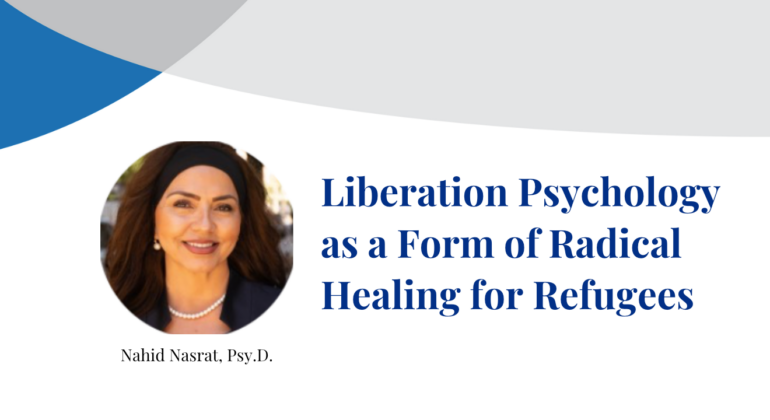Liberation psychology, pioneered by Ignacio Martín-Baró, a Jesuit priest and psychologist from El Salvador, is a field of psychology deeply rooted in the context of social justice and liberation movements. Martín-Baró developed liberation psychology in response to the oppressive political and social conditions in Latin America during the 1970s and 1980s. He believed that traditional psychology was inadequate in addressing the psychological needs of marginalized communities and that it often served to maintain the status quo rather than challenge it.
The purpose of liberation psychology is to empower marginalized and oppressed communities to understand and confront the systemic injustices they face. It seeks to address the psychological consequences of oppression, including trauma, low self-esteem, and learned helplessness, by fostering critical consciousness and collective action. Liberation psychology aims to promote social change by challenging oppressive structures and advocating for social justice and equality. In minoritized communities, liberation psychology plays a crucial role in validating people’s lived experiences and identities while providing tools for resistance and resilience. By acknowledging the impact of systemic oppression on mental health and well-being, liberation psychology offers a framework for understanding the interplay between individual experiences and broader social structures. It encourages individuals and communities to reclaim agency and challenge dominant narratives that perpetuate marginalization and discrimination. Liberation psychology seeks to create spaces for healing, empowerment, and social transformation within minoritized communities.
Liberation psychology offers a transformative framework for addressing the psychosocial health and well-being of refugees from an anti-oppressive stance. At its core, liberation psychology seeks to challenge and dismantle systems of oppression that perpetuate inequality and marginalization. For refugees, who often face multifaceted forms of oppression stemming from displacement, discrimination, and trauma, liberation psychology provides a holistic approach to healing and empowerment in various ways.
Firstly, liberation psychology recognizes the importance of centering the voices and experiences of refugees themselves in the process of addressing their psychosocial needs. By prioritizing the agency and autonomy of refugees, practitioners can work collaboratively with individuals and communities to identify the root causes of their distress and develop culturally relevant interventions. This participatory approach fosters a sense of ownership and empowerment among refugees, counteracting feelings of helplessness and disempowerment often associated with displacement.
Secondly, liberation psychology emphasizes the interconnectedness of individual well-being and broader social structures. It acknowledges that refugees’ mental health is deeply influenced by intersecting systems of oppression, including racism, xenophobia, and economic inequality. Therefore, anti-oppressive practices within liberation psychology involve advocating for systemic change and challenging the structural barriers that perpetuate refugee marginalization. This may include advocating for policy reforms, promoting social justice initiatives, and amplifying the voices of refugees in public discourse.
Furthermore, liberation psychology recognizes the importance of cultural humility and intersectionality in understanding refugees’ psychosocial experiences. It acknowledges that refugees come from diverse cultural backgrounds and may have unique resilience strategies and coping mechanisms shaped by their identities and histories. Therefore, practitioners must approach their work with sensitivity and humility, recognizing their own biases and limitations while actively engaging with refugees as experts of their own experiences.
In addition, liberation psychology promotes collective healing and solidarity-building among refugees and their communities. It recognizes that healing is not solely an individual process but also a collective endeavor that involves restoring a sense of belonging, connection, and shared humanity. Through group-based interventions, community organizing, and collective action, refugees can find strength and support in one another, fostering resilience and resistance against oppressive forces.
Currently, there are 110 million refugees around the world, either displaced by climate change, political conflicts, or a combination of both. It seems almost impossible to use psychological tools that have Western context to address the condition of refugees. Liberation psychology offers a transformative framework that challenges traditional notions of mental health and well-being by centering liberation, justice, and empowerment. By adopting an anti-oppressive stance and prioritizing the agency, autonomy, and dignity of refugees, practitioners can create spaces for healing, resistance, and transformation that honor the full humanity and potential of refugees and their communities. By acknowledging the impact of systemic oppression, these approaches empower individuals and communities to reclaim agency and address both personal and collective healing. Collaborative efforts that involve refugees in the design and implementation of interventions are crucial for relevance and sustainability.
Reference
Nasrat, N. & Riaz, M. (2023). Social Justice Informed Therapy and Racially Minoritized Individuals. In the Handbook of Social Justice in Psychological Therapies Power, Politics, Change. Charura, D. and Winter, L.A. (Eds). Sage Publication

